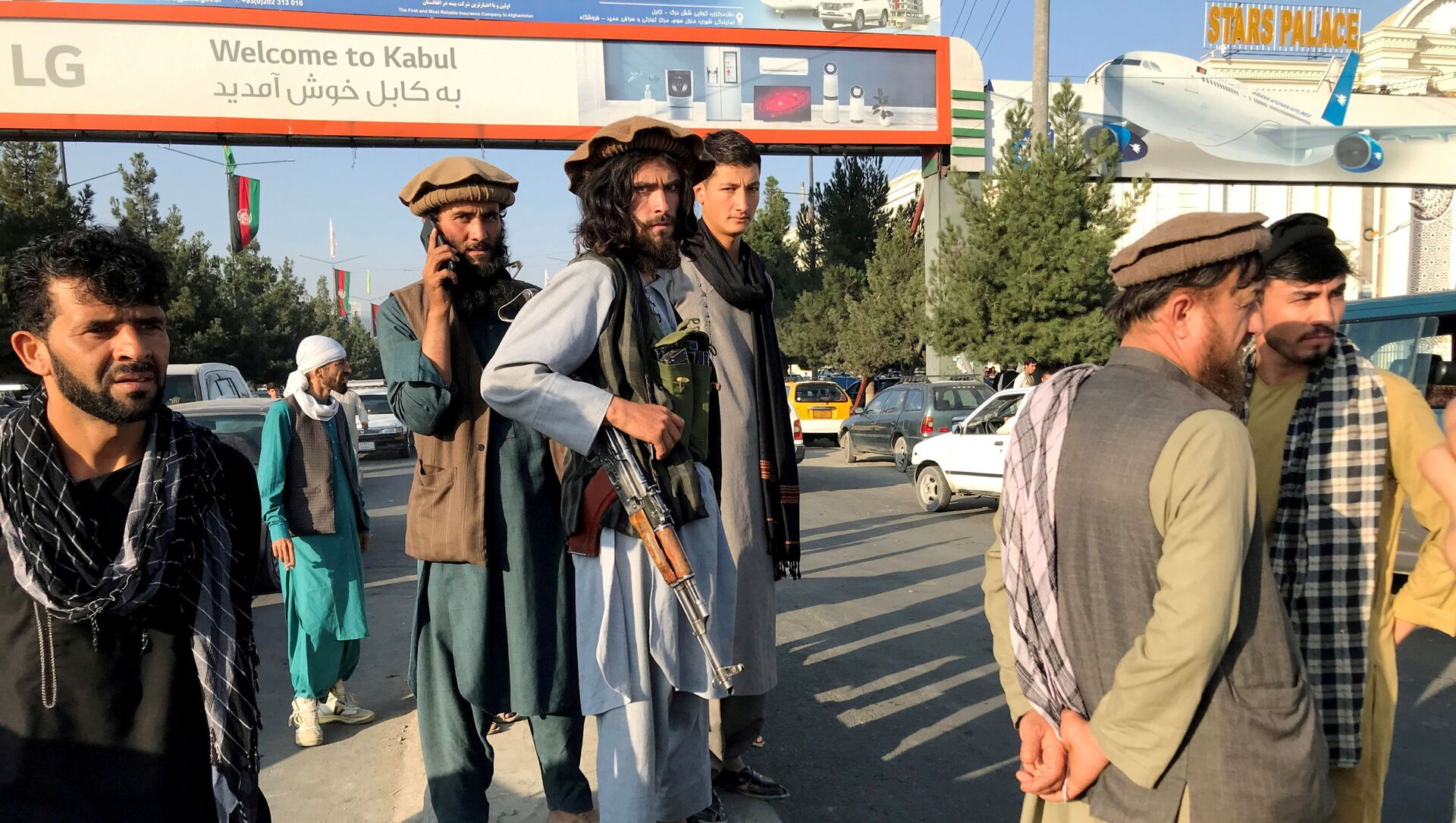The Taliban’s Unity Gave Them Afghanistan, But Will They Manage to Get International Recognition?
07:08 GMT 19.08.2021 (Updated: 09:39 GMT 19.08.2021)

© REUTERS / Stringer
Subscribe
An Israeli expert believes that a number of players in the region will welcome the new government in Kabul, once it is formed. But there will also be other countries which will maintain unofficial ties with the Taliban* without any formal recognition.
The United States and its allies are continuing their military pullout from Afghanistan; meanwhile, pundits and experts are trying to explain what led to the Taliban’s rapid success in taking over the country.
Initially, it seemed that the Taliban didn't have a chance against the Afghan forces, which according to some estimates, numbered 230,000. But when they took over the country, some experts pinned the blame for the fiasco on the corruption of the Afghan leaders and their military forces, which pocketed money which was supposed to go towards training.
Others faulted the Afghan forces' poor military planning, their incompetence, and the Taliban's successful strategies.
Power in Unity
Dr. Eado Hecht, a military expert from the Begin-Saddat Centre for Strategic Studies, suggests that the rapid fall of the government can also be explained by the lack of enthusiasm of the Afghan people, their internal divisions and the fact that since 1919, when they got their independence from Britain, they have never been able to form a true nation.
"There is no Afghan nation - there are a number of them, each is divided into tribes; each tribe comprised of clans. There's no real unifying force holding them together."
The Taliban, on the other hand, were the complete opposite. In their previous reincarnation, during the Soviet invasion, the Mujahideen were united against a common enemy. But once the communist government that was backed by Moscow finally fell, the glue that kept them together was gone, and the fighters returned to the squabbles that had characterised the Afghans earlier.
"It was then that the Taliban first came on the scene. They were a united group, extremely ideological, with much reduced interest in tribal and clan politics. They were also mostly of one nationality, the Pashtun."
That unity and a common cause helped the group make rapid gains in the war-torn country. They won over some factions. Others were forced to align themselves with the Taliban in order to survive.
Then, in 2001, came the Americans, and the unity of Taliban has only gotten stronger.
The Americans have imposed a foreign culture on the locals. They demanded democracy, the protection of minorities and women's rights. They called on the tribal leaders to put an end to the opium production business. It was not to the liking of many people, especially those living in rural areas, far away from the centre controlled by the government. It was the glue that kept them together.
Weaker Copies
However, religious zeal, relative unity and growing support among the masses were not the only factors behind the Afghan forces' swift collapse, and Hecht believes it was also made possible because "the Americans trained local forces to be weak American copies".
"Those were never able to fight the Taliban without the American support. They were trained to be dependent on American military technology -- and lots of it -- but culturally and educationally they did not have the American background to do it themselves. Plus, they didn't have any logistical capabilities to maintain it over time."
In Search of Allies
They also lacked enthusiasm, and the Taliban managed to take over the country within weeks. Now, as the control is in their hands, Hecht is left wondering which country will be first to recognise their regime.
"The first ones will probably be China and Pakistan, because both have common borders and interests that could be directly affected."
Beijing has already stated that it would "welcome" friendly relations with the Taliban, after it was reassured that Afghanistan will not be used as a hub for terrorism that could potentially destabilise China.
A similar stance is held by the authorities of Pakistan, who said earlier they were willing to engage with the Taliban.
"As to other countries, I think it will largely depend on the Taliban's behaviour. Plus, there is also a difference between official and unofficial recognition. If the Taliban create a stable regime, countries that do not wish to accept it officially, might very well accept the fait-accompli covertly in order to achieve some of their interests," said Hecht.
Such might be the case with the US, says the expert, which is worried the country will turn into a hub of terror; and with Moscow, which has been concerned that instability in the region will end up spilling over to Uzbekistan, Tajikistan and Turkmenistan, from which it would eventually cross over to Russia.
Similar behaviour is also expected from Iran, which will keep an eye on how Afghanistan's Shiite communities are treated, and that treatment might also impact Tehran's allies, like Lebanon’s Hezbollah, and its ties with the new rulers of the war-torn country.
"Being a Shiite organisation controlled by Iran, Hezbollah will be affected by the development of Iran – Taliban relations. If things go sour between Iran and the Taliban, we will see more Iranian funding diverted to its eastern border at the expense of its other projects – including Lebanon, Syria, Iraq and Yemen," summed up Hecht.
*The Taliban is a terrorist organisation banned in Russia and many other countries.

